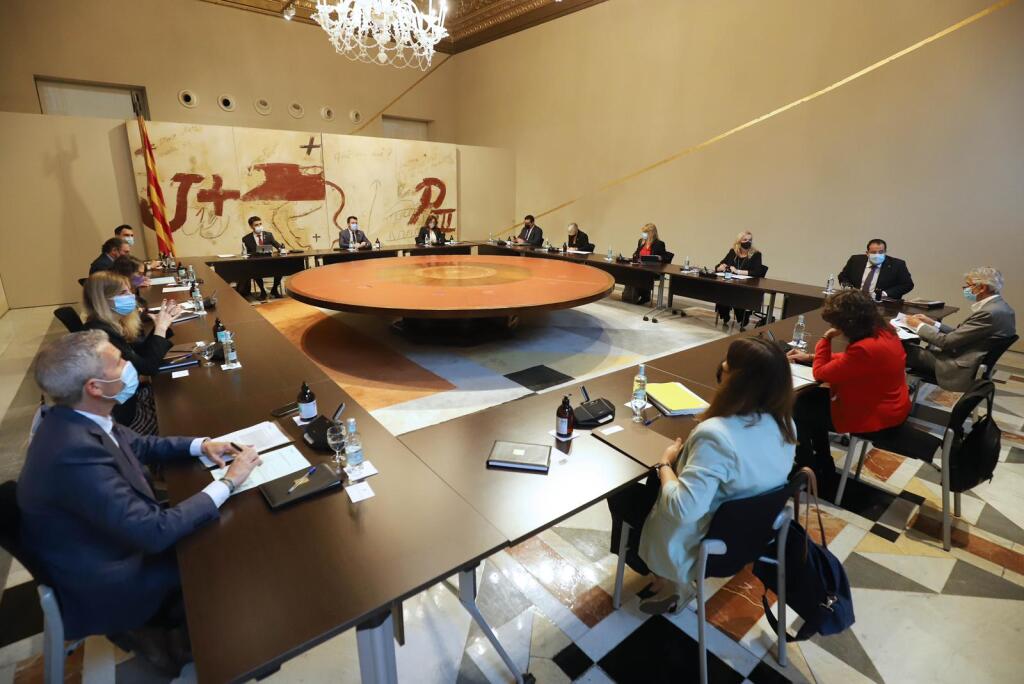22.09.2021 - 08:29
|
Actualització: 22.09.2021 - 10:29
The Catalan government has published its plan for the current term, due to end by early 2025, and despite recent internal discrepancies, the two cabinet partners have found consensus over how to find a way out of the political crisis with Spain. According to the document, the executive will move towards a democratic resolution of the independence issue “through a negotiation process following international democratic standards with a political negotiation table” between the governments of Catalonia and Spain. The Catalan side commits again to urge “the end of political repression, amnesty for those currently repressed and the exercise of the right to self-determination” as their main objectives.
The plan covers all departments, prioritizing health: outlining an extra €5bn of public expenditure on the public health system in the coming five years and 25% of the whole health budget to be spent on primary care. The cabinet has also committed to spending an extra €80m on mental health, considering the impact of Covid-19.
The fight against the climate emergency is another priority for the executive, with plans to create a public energy company during this term. On that note, the government also wants to have part ownership of new renewable energy plants, and participate in the management of hydroelectric plants – whenever licenses for companies expire – and electric vehicle charging stations. Supporting the green economy, working on air quality, especially in the Barcelona area, and putting forward policies for a circular economy to reach ‘zero waste’ are other aims. The rest of the UN’s Agenda 2030 sustainable development goals are also included in the plan.
Public transport
Related to climate change, the government also plans to encourage more use of public transport. The upper age limit for the T-Jove travel card will rise from 25 to 30 – T-Jove is a personalized ticket valid for an unlimited number of journeys in 90 consecutive days. The plan also includes proposals to construct a new public transport link between the T1 and T2 terminals at Barcelona airport, and high-speed train links between the main Catalan cities and Barcelona, Girona and Reus airports.
These works may need the collaboration of the Spanish government, although the Catalan cabinet is also urging for the management of the commuter Rodalies train services, as well as all airports, roads and ports to be transferred in full to Catalonia. As for the controversial expansion of Barcelona airport, it is not specified as a priority for the Pere Aragonès’ government.
Housing
Another primary concern in Catalonia is housing, and the government plans to make 5,000 more social flats a year available to rent, including taking ownership of 3,000 apartments now in the hands of Sareb, Spain’s bad bank. Aragonès’ team also aims to get banks, estate agents and investment funds to engage “more actively” in allowing the social use of their assets. They also intend to sharply reduce the number of evictions.
These are only some of the ideas outlined in order to ensure 15% of all housing in Catalonia is used for social policies. Other housing-related aims include using €810m from the EU Next Generation funds to refurbish 25,000 flats a year, which would also help fight the trend of rural depopulation.
Language
Promoting the Catalan language is another flagship policy that the Catalan administration wants to fulfill. For instance, its ongoing struggle with Madrid in order to set some quota for Catalan in the Spanish audiovisual law is supported by the plan presented on Tuesday, which aims to focus on young people and the sectors where the presence of the language is scarce, such as “labelling, justice, audiovisual production, and videogames.”
Increasing the use of Catalan among internationals living in the country is another aim, with the promotion of the CNPL institution, which offers free courses, and other new initiatives such as ‘Aula al Carrer’ (classroom in the street) and ‘Comerços aprenents’ (learning stores). Fostering the language within Catalan communities abroad is another policy laid out in the text.


